According to a Cyber Security Strategy paper released by PWC, 90 % of large business organizations suffer security breaches at least once a year. Over 60 percent of these organizations are attacked by outsiders. To curb this threat, companies are looking for ethical hackers who can fortify business networks and prevent cyber attacks by identifying technological defects.
The huge extent of growth in the communication and information technology sector has opened up more access avenues that are of particular interest to cyber-criminals.
The Rising Need for Ethical Hackers
The information technology sector is embracing cloud computing whose major trends are IT outsourcing and virtualization. The transition to cloud computing is marred by security gaps that increase the level of cybersecurity threats. Hence, the high demand for certified ethical hackers.
Companies require ethical hackers in order to avail the benefits of cloud computing without compromising on data or information security. Hence, the job opportunities in ethical hacking are on the rise at present. Additionally, the cyber sector is developing rapidly presenting complex security requirements that can only be overcome by an expert and professional ethical hacker.
Duties and Qualifications of a Certified Ethical Hacker
Certified ethical hackers are white hat hackers who hack systems legitimately with one objective and under strict protocols. Their only objective is to secure and encrypt systems from malicious cyber-attacks, phishing attacks, viruses, and worms.
They rely on encryption and cryptographic techniques like vulnerability testing and penetration method to understand the integrity of the displayed information.
An ethical hacker’s job requirements may include; programming knowledge of LISP, JAVA, Perl, and C, an understanding of Linux/Unix commands and strong computer skills as well as a high social engineering talent that is not acquired by learning ethical hacking. Social engineering is a non-technical mode of the network intrusion that relies on human interactions where people are tricked into breaking laid out security procedures.
Concluding Remarks
Cybersecurity is classified among the top threats in the world. This explains the increasing job opportunities in ethical hacking for people who are certified to legally hack web servers and decode wireless encryptions in a bid to exploit security vulnerabilities and determine the possibility of a black hat hacker accessing a system. Hence, security experts emphasize that hiring certified ethical hackers to penetrate and examine a company’s system should be classified as an essential and mandatory business practice.





About The Author: SEED Infotech
More posts by SEED Infotech